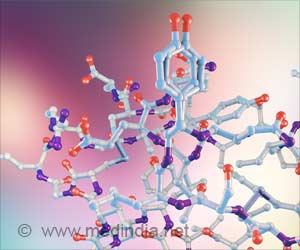According to scientists, switching over from the standard breast cancer therapy drug tamoxifen, to another one exemestane could cut related deaths by almost one-fifths.
According to scientists, switching over from the standard breast cancer therapy drug tamoxifen, to another one exemestane, could cut related deaths by almost one-fifths.
Publishing their findings in the online version of The Lancet, researchers Dr. Francesco Boccardo of the National Cancer Research Institute, UK, and team, stood for changing treatments tracks to exemestane after 2 or 3 years of tamoxifen. This so, as it reduced deaths by 17 percent.Their findings stem from a study of 4,742 women who were treated for a total of five years and monitored for another three.
The subjects were randomly assigned either to a full five years of tamoxifen, or treatment with tamoxifen followed by exemestane.
Giving women tamoxifen after surgery already reduced the risk of dying by 33 per cent compared with no treatment. After another two to three years of exemestane and a further three years of post-treatment follow-up, survival was found to be significantly improved.
The chances of dying were now 50 per cent lower than they would have been with no chemotherapy, and 17 per cent lower than they were, without the switch over from tamoxifen.
Exemestane belongs to a group of aromatase inhibitors. They are a newer class of drugs and include the medicines Femara, Aromasin, and Arimidex.
Advertisement
Around 31,000 post-menopausal women are diagnosed with breast cancer in the UK each year. In 80 to 85 per cent of these cases, the disease is promoted by estrogen.
Advertisement
In addition, it was observed that patients treated with exemestane were 25 per cent less likely to see their cancer return than those who remained on tamoxifen.
Says Dr. Mary McCormack, consultant clinical oncologist at University College London Hospital, "It is important that women with the disease who are suitable to be treated with exemestane are fully informed of the benefits of switch therapy."
Dr. Alexis Willett, senior policy and information officer at the charity Breakthrough Breast Cancer warns , "Aromatase inhibitors, like exemestane, now increase the treatment options available for breast cancer patients. However, it is important to remember that they are not suitable for everyone. Anyone concerned about their treatment should speak to their doctor."
Dr. Lauren Cassell, a breast surgeon at Lenox Hill Hospital in New York City who opines: “While aromatase inhibitors don’t increase the risk for endometrial cancer or stroke associated with tamoxifen, they do increase the risk for osteoporosis and, in some cases, significant joint pain”, supports his statement.
“And, they are much more pricey than tamoxifen, which is a problem for older patients on fixed incomes who don't have insurance.” she adds.
Source-Medindia
ANN











